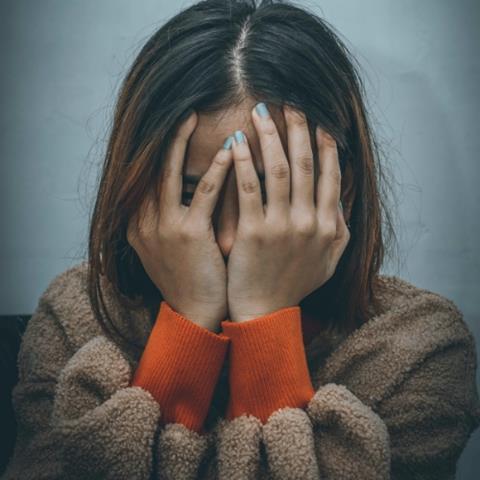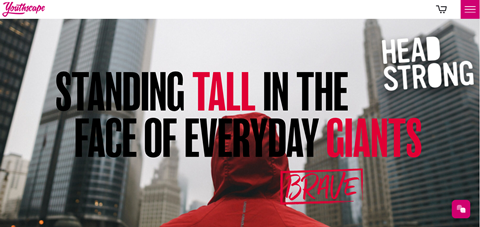Dr Kate Middleton gives advice to parents and carers of young people going through complex emotions, and introduces a new resource from Youthscape called Brave

Media reports come thick and fast about the challenge of mental health for teenagers and young adults – pre-existing pressures made worse by pandemic. But tragically they also talk of the limitations of child and adolescent mental health services, and the resulting difficulties of accessing good treatment.
This leaves those who love and care for young people in a difficult position, anxious if any mention at all of negative emotions comes up, uncomfortably aware of how difficult it might be should a problem develop. So how should we respond to the worries about wellbeing – particularly in this post-lockdown season when so many more are struggling?
As a parent myself, I recognise the difficulties of managing this. It’s hard not to panic when your child comes home in tears, or is in a state of nervous tension about exams or schoolwork. But we’ve got to recognise that negative emotions are a normal part of life and, more than that, they are often healthy. Emotions like anxiety moderate and focus our attention, and at lower levels improve our performance. Even sadness is about bringing something significant to the front of our minds so we can process and understand its importance. And of course, we express our emotions because we’re designed as social beings, not intended to manage these things on our own.
So, should we be alarmed by reports about mental and emotional illness in young people? And how should we respond? Here are three pieces of advice:
1. Be aware that the media tends to focus on the negative. While recent reports show a significant proportion of young people struggling, most studies still show that although the pandemic was tough for everyone, the majority are managing well. We mustn’t assume that every teen has an emotional time bomb in their brain.
2. We do need to recognise challenges. This world is an intense mix of chaos and uncertainty right now, and young people are hearing a lot of negative messages about their future and their mental health. This may mean that the only messages they hear about emotional wellbeing is focused on illness – meaning the only frameworks they have to interpret the often-intense emotions that are normal in adolescence are about being unwell. This makes those emotions feel even more overwhelming, and can leave teens feeling frightened, isolated and alone.
3. Provide safe spaces. The most important thing we should focus on is what we can do to support our young people. Create or find safe, agenda-free spaces and opportunities for them to share as they process the things they are experiencing, pondering or worrying about. This may be time with parents or, as they grow, spaces with other adults they know – relatives, friends, youth workers and teachers. We can also share our own emotional experiences – the days we manage things well and (gulp) the days we get overwhelmed, modelling how to manage emotions without fear. This is not about having to become an expert or amateur therapist; it is about helping them make sense of a confusing world and, where they hit things they don’t know how to handle, exploring those together.

A brand-new resource
It is this third message that underlies a new, free resource from Youthscape in conjunction with youth-focused space Headstrong. BRAVE aims to resource and equip adults who are supporting young people and the young people themselves to understand four key areas that have been particularly difficult through the pandemic, and which are always common underlying issues for mental and emotional wellbeing challenges. It offers a toolkit of videos, podcasts and articles, as well as games and creative ideas designed to help start good conversations.
And it’s not just about them. The resource also recognises that many of these issues have been challenges for us, too. Focus groups and conversations with parents, youth workers and leaders all demonstrated the same thing: that adults often struggle to talk about these things because they find them difficult themselves. Some material is specifically designed to help adults understand why it is hard for everyone, and to process, ponder and pray through their own experiences before broaching these issues with the young people they want to support.
You can access all the BRAVE material and resources at youthscape.co.uk/brave

I’m a mental health specialist and a mental illness diagnosis shouldn’t define us - only God can do that
I’m a Christian and a doctor and this is how your periods affect your mental health, plus how to manage it the godly way
The three things we need to teach our children - and ourselves - about eating, when the world says restricting our food is good




























